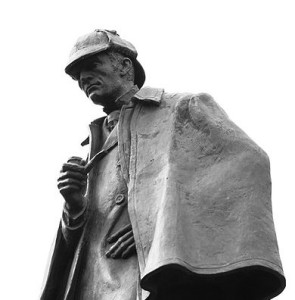podcast 241 – Dr. Beau Branson on the Monarchy of the Father – Part 3
Was 381 the dawn of imperially enforced confession of a triune God?
Was 381 the dawn of imperially enforced confession of a triune God?
Can one be a trinitarian without believing in a tripersonal God?
In this second part of my conversation with Dr. Larry Hurtado about his book Destroyer of the gods: Early Christian Distinctiveness in the Roman World, we discuss the distinctive “bookishness” of early Christianity
By me, here at the excellent Internet Encyclopedia of Philosophy (printable version). A taste of it: …pluralistic approaches to religious diversity say that, within bounds, one religion is as good as any other. In contrast, exclusivist approaches say that only one religion is uniquely valuable. Finally, inclusivist theories try to steer a middle course by agreeing with exclusivism that one religion has the most value… Read More »new article surveying Theories of Religious Diversity
I first encountered Sir Anthony Buzzard (yes, he’s a real “Sir”, and his wife Barbara a “Lady”) in the endnotes of Dallas Willard’s The Divine Conspiracy. Willard had referred to his short book The Coming Kingdom of the Messiah. Buzzard and Willard have in common a deep grasp of the good news of the Kingdom as preached by Jesus, and the centrality of God the Father to… Read More »podcast 44 – The Spiritual Journey of Sir Anthony Buzzard
Here. On the whole, a well done piece. Craig is indeed a fearsome debater, and a bold and insightful scholar. His devotion to apologetics makes him a bit uncool among professional philosophers. But I would guess that his work is probably read by more average people – Christians, atheists, Muslims, and who-knows-what – than any living philosopher. The reason is that it has many good… Read More »William Lane Craig in the Chronicle of Higher Education
 John Biddle (1615-62) (also spelled “Bidle”) has been called “the father of English Unitarianism.” (But he didn’t use the word “unitarian” – that had yet to be coined, as a more descriptive, less polemical alternative to “Socinian.”) When he taught his theology publicly, he ran afoul of the the law, and eventually died in jail, imprisoned for his beliefs.
John Biddle (1615-62) (also spelled “Bidle”) has been called “the father of English Unitarianism.” (But he didn’t use the word “unitarian” – that had yet to be coined, as a more descriptive, less polemical alternative to “Socinian.”) When he taught his theology publicly, he ran afoul of the the law, and eventually died in jail, imprisoned for his beliefs.
Here are three of the six articles of his A Confession of Faith Touching the Holy Trinity, According to Scripture. (1648, reprinted in a 1691 book, itself reprinted in 2008.) I have modernized his spelling and use of capitals and punctuation, and have added emphases in bold.
Article I: I believe that there is one most High God, creator of heaven and earth, and first cause of all things pertaining to our salvation, and confessedly the ultimate object of our faith and worship; and that this God is none but the Father of our Lord Jesus Christ, the first person of the Holy Trinity. (p. 1)
Article II: I believe that there is one chief Son of the Most High God,Read More »John Biddle’s unitarian confession of the Holy Trinity
Review of a learned and insightful yet deeply flawed book.
Is it reasonable to believe in the reported miracles of early Christianity?
I answer some questions and ask some, in response to this well done book review.
Equally divine or not? Dr. Craig on generation, procession, and the Logos theologians.
Is this “beginning” when the cosmos was created by God, or when it was “newly created” through the man Jesus?
What is “classical” theism, and why is it controversial?
In this follow-up post, three factors that make Rufinus’ corruption of Origen’s On First Principles all the more egregious. First, after recklessly changing anything he doesn’t like in translating Origen’s book, absurdly claiming that anything Origen says that doesn’t comport with the (then) new Nicene orthodoxy must have been changed by heretics, and lyingly (or idiotically) claiming to have filled things in only with Origen’s other words or ideas… Read More »Rufinus’s corruption of Origen’s On First Principles – Part 2
I’ve been working on my Trinities book today, and have been reading a lot of Origen (d. c. 253) lately. As is well known, most of his famous On First Principles (kindle, hardback) has been lost in the original Greek, but we have a “complete” copy of a Latin translation made by Rufinus of Aquileia (d. 410) in 398-9. Unfortunately, this translation was made in… Read More »Rufinus’s corruption of Origen’s On First Principles – Part 1
Dr. William Vallicella discusses his relation to the Roman Catholic faith of his youth, his idea of what philosophy is all about, the concept of God, the utility of meditation, blogging, and his views on faith and reason.
After what has been said in the foregoing pages, we are prepared to re-assert, in conclusion, that the modern doctrine of the Trinity is not found in any document or relic belonging to the church of the first three centuries. Letters, art, usage, theology, worship, creed, hymn, chant, doxology, ascription, commemorative rite, and festive observances, so far as any remains, or any record of them… Read More »the concept of a triune God an anachronism in the first three centuries
 As pretty well summarized here by unitarian Theophilus Lindsey.
As pretty well summarized here by unitarian Theophilus Lindsey.
In the year 1694 began the great contest concerning the Trinity, betwixt two celebrated doctors of the church, Sherlock and South; each of them reputed and reputing himself orthodox, and each of them espoused by learned and powerful partisans.
Dr. Sherlock expressly asserted, that the three persons in the Trinity are three distinct, infinite Minds or Spirits, and three individual Substances. Dr. South held only one infinite eternal Mind or Spirit, with three Somethings that were not three distinct Minds of Substances, but three modes, faculties, attributes, relations, relative properties, subsistances, as there were variously denominated. Dr. Sherlock was accused, and with great justice, if words have any meaning, of polytheism, or holding three Gods. Dr. South, on the other hand, came under the imputation of explaining away the Trinity, and falling into the Sabellian or Unitarian system: and accordingly some of the Socinians took advantage of the Doctor’s explication of the doctrine of the church, and declared in their writings, that the should not be backward to give their approbation to the Liturgy and the Articles, if that was the kind of Trinity which the language therein used was intended to inculcated.
The university of Oxford, to whom Sherlock was obnoxious on account of his political principles, declared forRead More »the fate of “social” trinitarianism in late 17th c. England (Dale)